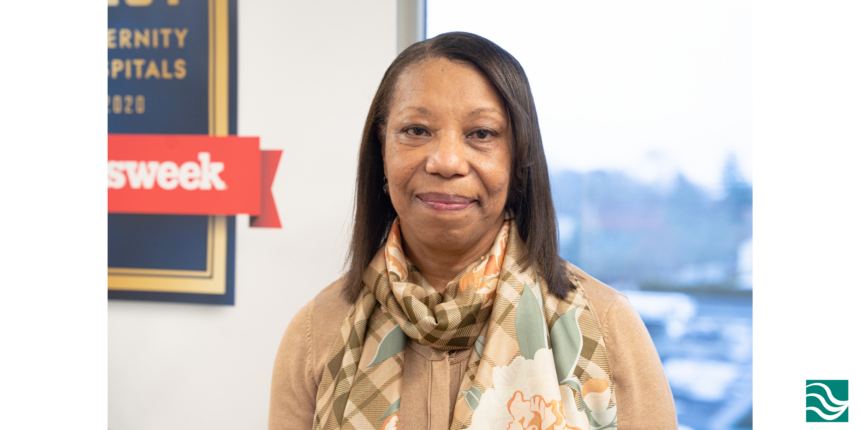Staff Profiles
Celebrating Black History Month: Joella Cruz

Joella Cruz knew she wanted to become a nurse while she was growing up in Canton, Mississippi.
She would watch her Uncle Mose, who had diabetes, boil the syringes he used for his daily insulin injections. “I wanted to help him,” she recalled.
Her Uncle Mose passed from complications of the disease when he was only 51, but helping to care for him led Joella to the nursing career that she has loved for 38 years.
“He inspired me to become a nurse,” said Joella, who now lives with her husband in West Wareham.
Joella, grew up with three siblings, received her Bachelor of Science degree in nursing from Indiana University, with a direct commission in the Army Nurse Corps and served our country for 10 years.
She was based at Fort Sam Houston in Texas, Fort Jackson in South Carolina, and Fort Irwin in California. She also was stationed for a time in Fairbanks, AK, and spent four years of service in Germany before leaving the military for a position at Northside Hospital in Atlanta.
“It was a big change going from active duty to civilian nursing,” she said, but ultimately it led her to St. Luke’s Hospital in New Bedford, where she has been for the past 21 years. She works at the Family-Centered Unit, caring for new mothers and their babies.
“I’ve loved my career for 38 years,” she added.
A woman of color, she said she also has witnessed the prejudice that exists within her field, and it affects both patients and medical professionals.
While she was working in Georgia, she witnessed a patient under the care of a nurse who was also a woman of color. The patient “asked for another nurse because the nurse’s hands were too black,” she said. “Black History Month can be sad for me. Black history is American history. Even being educated doesn’t shield you from ignorance and discrimination,” she said.
Knowing the history of American medicine means knowing about the brutal experiments conducted on black patients, including surgical procedures conducted without anesthesia because a well-known southern gynecologist “believed black women don’t feel pain.”
That, however, has not been the case in her career at Southcoast Health, where she said “people are very professional, and I know of no example of racial bias” on the job.
She remembered one mother at St. Luke’s who had to be admitted for rehabilitation for several weeks, keeping her away from her infant, who remained at the Family-Centered Unit. The nurses there made a memory book for the new mom and recorded all the early events of the child’s life so that the mother would not miss anything.
“That mother was so appreciative” of the deep personal care of those St. Luke’s nurses. Medical professionals, she said, must provide the very best care regardless of race, color, or economic status.
“Health equity means there is one standard for everybody,” she said. “They all deserve to be treated with dignity.”
To learn More about how Southcoast Health is shining light on health equity during Black History Month, please visit Celebrating Black History Month | Southcoast Health.
